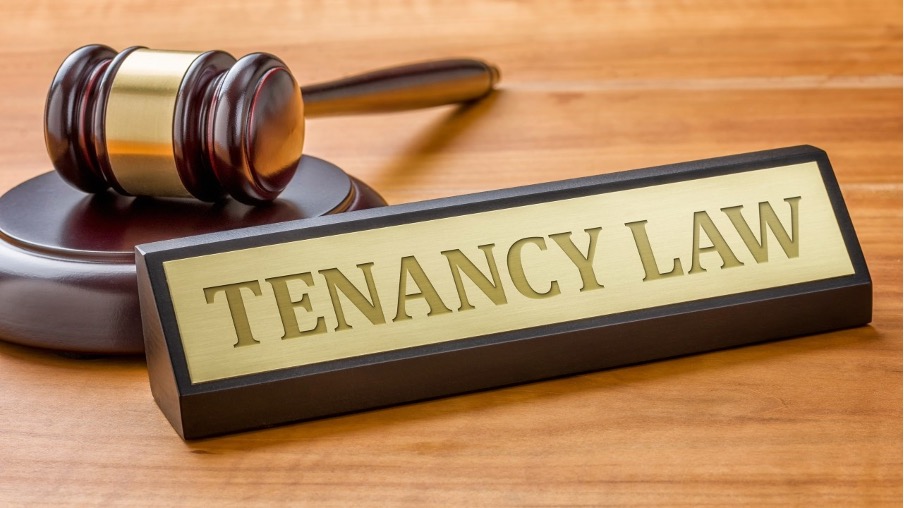Tenants defaulting on rent isn’t unfamiliar, and no landlord ever likes it.
Things get even more frustrating when the delay stretches for months or even years.
So, what can you do as a landlord? The first step is to make a decision. For many landlords, the goal is to evict the tenant (and make sure they pay what they owe before leaving).
No matter your approach, you’ll likely want to take the legal and effective route. That’s exactly what this article is about.
While it’s important to consult a real estate lawyer to ensure you’re following the proper steps and complying with the Lagos State Tenancy Law, we’ll walk you through five practical approaches that landlords have used successfully.
Table of Contents
ToggleWhat To Do When Tenant Isn’t Paying Rents

The recommendations we share in this post goes in line with The Lagos Tenancy Law of 2011 which regulates landlord-tenant relationships in Lagos State, Nigeria.
It outlines the rights and responsibilities of both parties, including restrictions on advance rent payments and notice periods for terminations.
It’s important to do things the right way so that it doesn’t backfire. Nothing hurts like being in the right but your actions make the tenant become the victim.
1. Serve a Formal ‘Notice to Quit’ (NTQ)
This is the first legal step and must be done before taking any other action.
A Notice to Quit is a formal letter telling your tenant that you intend to terminate the tenancy. It gives them a specific period (e.g., 1 month or 6 months, depending on the tenancy type) to move out.
How to do it:
- If the tenant is on a monthly tenancy, you must give 1 month’s notice.
- If it’s a yearly tenancy, you must give 6 months’ notice.
- The notice should be written, dated, and signed.
For example, if your tenant pays rent yearly but has defaulted after 7 months, you must still serve them a 6-month quit notice, even though they owe you.
That’s the law.
Without serving this notice properly, any eviction attempt can be declared illegal in court, and you might even have to pay damages.
2. Engage in Mediation or Alternative Dispute Resolution (ADR)
Sometimes a non-legal path can solve the issue quicker and save you stress.
Before heading to court, try mediation. This is a peaceful dialogue between landlord and tenant, usually with the help of a neutral third party such as:
- Estate Chairman
- Community leader
- Lawyer
- Lagos State Citizens’ Mediation Centre
You may discover the tenant has a valid reason like job loss, medical emergency, or salary delays.
You can negotiate an installment repayment plan, e.g., the tenant pays ₦50,000 every month until the debt clears.
Some landlords go to Citizens Mediation Centre (run by the Lagos State Ministry of Justice) or Local Community Development Associations (LCDAs) or local elders for this approach.
This method keeps the peace and maintains your reputation as a reasonable landlord.
3. Serve a ‘7-Day Notice of Owner’s Intention to Recover Possession’
This step comes after the Notice to Quit expires and the tenant still refuses to leave.
It means you’re informing the tenant that you are heading to court to recover your property if they don’t vacate in 7 days.
NOTE:
- It must be served only after the quit notice period lapses.
This is required by the Lagos Tenancy Law, and courts won’t hear your case without it.
The format of this letter is often called the “7 Days Notice,” clearly stating your intention.
4. File a Case in the Rent Tribunal or Magistrate Court
When all peaceful attempts fail, it’s time to go to court the right way.
You will file a suit for possession of your property and recovery of unpaid rent in a Rent Tribunal or Magistrate Court in your area (For example, the one in Bode Thomas, Surulere). .
What you need to take:
- Copy of the tenancy agreement (if you have one)
- Proof of rent owed (receipts, bank statements, WhatsApp chats, etc.)
- Copies of the Notices served (Quit Notice and 7-Day Notice)
It’s better to simply go through a lawyer.
For example, if your property is in Ikeja, you can file at the Ikeja Magistrate Court, and request the court to:
- Evict the tenant
- Order payment of the rent owed
- Sometimes award damages for losses (if proven)
The case can take a few months, but it’s the safest and most lawful method.
5. Avoid Illegal Eviction (Don’t Change Locks, Remove Roof, or Harass Tenant)
Even if you’re frustrated, do not take the law into your own hands.
Under the Lagos Tenancy Law 2011, it’s illegal to remove the tenant’s door or roof, lock them out, disconnect water or electricity, or even physically threaten or harass them.
If you do this, the tenant can sue you, and you may be ordered to pay damages or even face arrest.
Instead, stay lawful by documenting all interactions and using the court or ADR methods.
How To Avoid Rent Default In Future
Once you are able to get past the issue with this particular tenant, it’s important to now review your future rental agreements.
Many landlords fail to go back to the drawing board. And, that’s why they keep being in that situation of fighting tenants in court.
To avoid issues like this again, ensure your next tenant:
- Signs a written agreement
- Pays a security deposit
- Agrees to consequences for non-payment, such as interest on unpaid rent
- You can also screen tenants more thoroughly before handing over keys. Ask for guarantors, workplace details, etc.
Final Thoughts
Sometimes, as a landlord, you might want to be patient and give a tenant more time. But let’s be honest, some tenants can be downright frustrating.
There are people who simply don’t want to pay rent, yet they want to keep living in the apartment for free.
On top of that, they’ll pile up unpaid bills like water, LAWMA, security fees etc.
That said, it’s always best for landlords to seek legal advice from a real estate lawyer. This helps you follow the proper procedures and stay in line with the Lagos State Tenancy Law.
One key thing is to keep a detailed record of all interactions with the tenant (calls, texts, rent receipts, warning letters, and anything tied to your tenancy agreement).
These documents will be useful if the case ever needs to go legal.
FAQs
Can a landlord evict a tenant before lease expires?
No, unless the tenant violates the terms of the lease (e.g., stops paying rent, damages the property, or engages in illegal activities). Even then, you must follow due process, including serving proper notices and possibly going to court.
How many months can a tenant be late on rent?
There’s no fixed number in law, but once the rent is overdue, even by 1 month, the landlord can legally start the eviction process (by serving a Notice to Quit). Most landlords act after 2–3 months, but legally, default is default.
Will a tenant pay rent after quit notice in Nigeria?
Yes. The tenant is still expected to pay rent up until they vacate the property. Even if they receive a quit notice, they owe rent for the time they remain in the premises. If they don’t pay, you can include it in your court claim.





